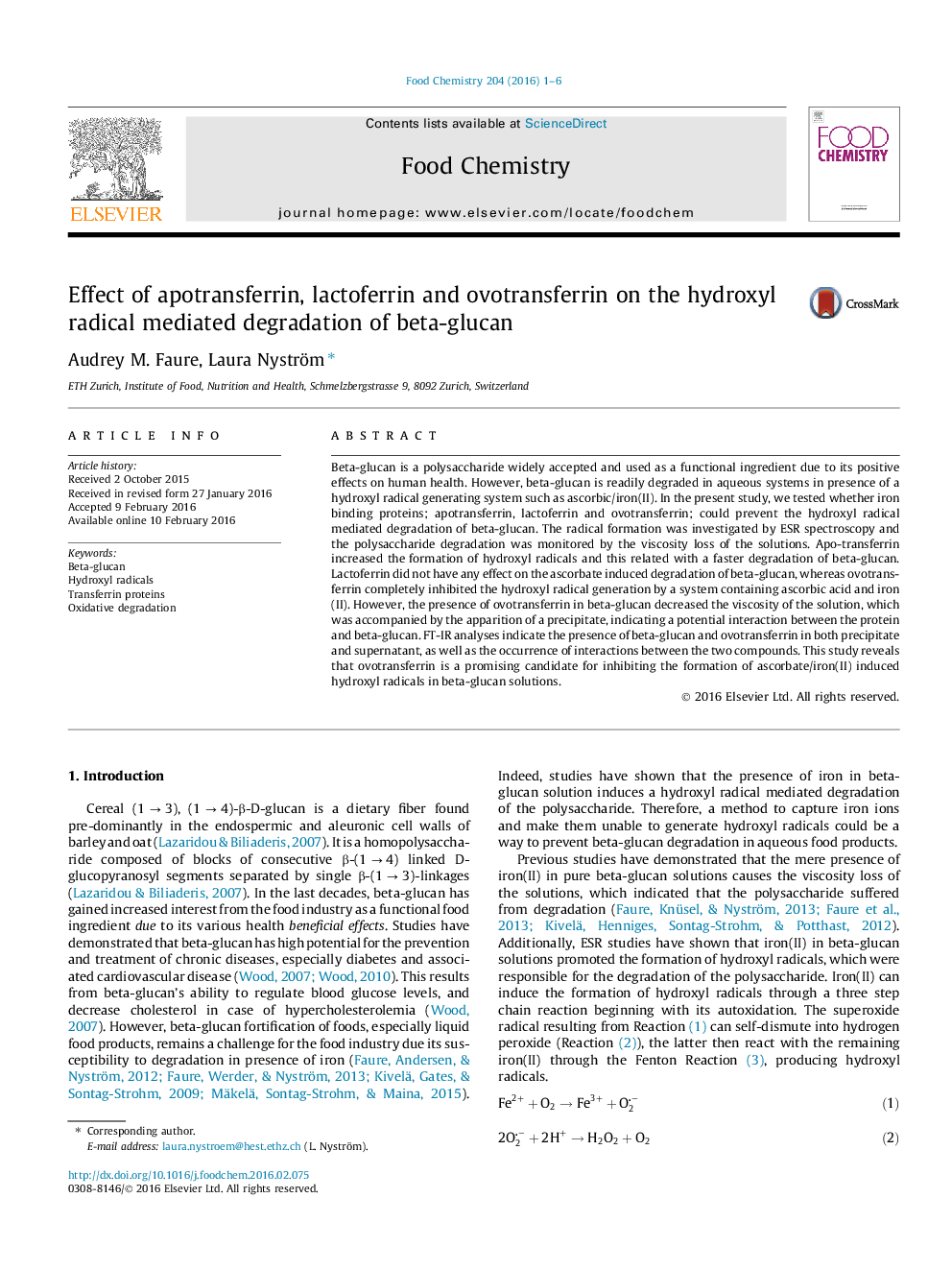| Article ID | Journal | Published Year | Pages | File Type |
|---|---|---|---|---|
| 7588765 | Food Chemistry | 2016 | 6 Pages |
Abstract
Beta-glucan is a polysaccharide widely accepted and used as a functional ingredient due to its positive effects on human health. However, beta-glucan is readily degraded in aqueous systems in presence of a hydroxyl radical generating system such as ascorbic/iron(II). In the present study, we tested whether iron binding proteins; apotransferrin, lactoferrin and ovotransferrin; could prevent the hydroxyl radical mediated degradation of beta-glucan. The radical formation was investigated by ESR spectroscopy and the polysaccharide degradation was monitored by the viscosity loss of the solutions. Apo-transferrin increased the formation of hydroxyl radicals and this related with a faster degradation of beta-glucan. Lactoferrin did not have any effect on the ascorbate induced degradation of beta-glucan, whereas ovotransferrin completely inhibited the hydroxyl radical generation by a system containing ascorbic acid and iron(II). However, the presence of ovotransferrin in beta-glucan decreased the viscosity of the solution, which was accompanied by the apparition of a precipitate, indicating a potential interaction between the protein and beta-glucan. FT-IR analyses indicate the presence of beta-glucan and ovotransferrin in both precipitate and supernatant, as well as the occurrence of interactions between the two compounds. This study reveals that ovotransferrin is a promising candidate for inhibiting the formation of ascorbate/iron(II) induced hydroxyl radicals in beta-glucan solutions.
Related Topics
Physical Sciences and Engineering
Chemistry
Analytical Chemistry
Authors
Audrey M. Faure, Laura Nyström,
